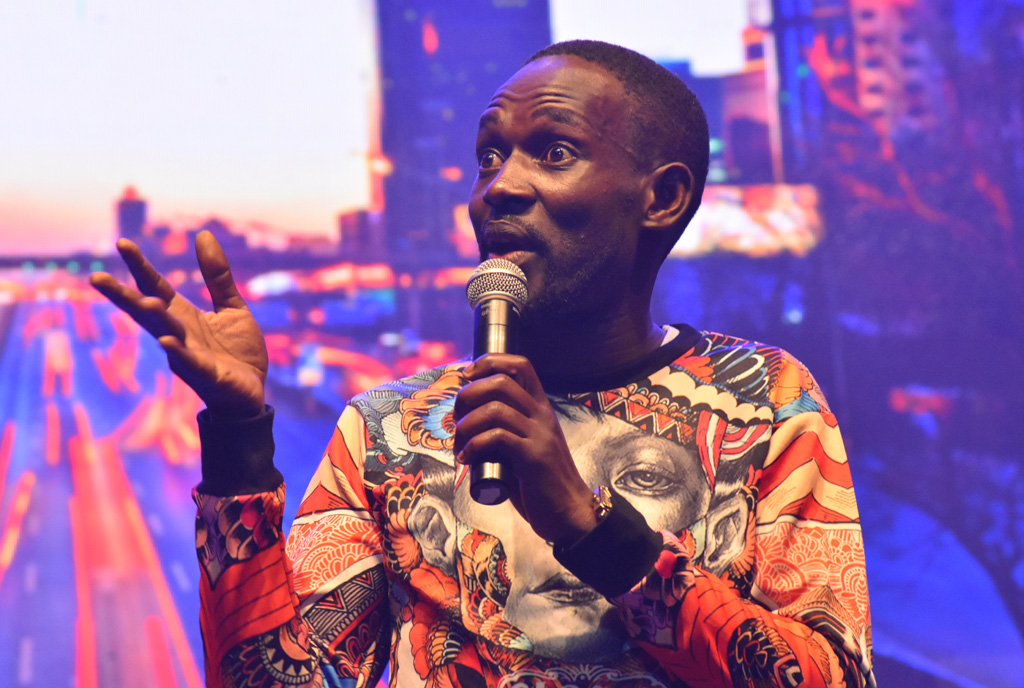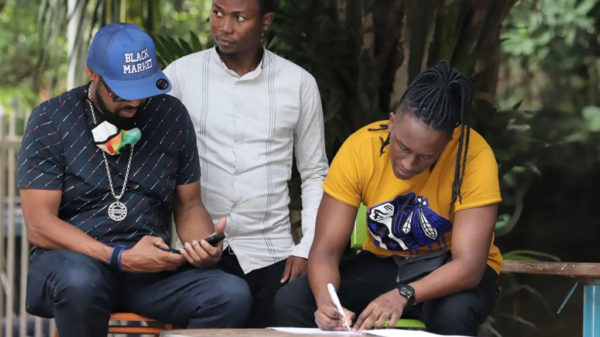
Gravity Omutujju
Despite 2023 being marked by unprecedented events and various shifts, Ugandans still created time to craft their own catchy phrases.
Like in past years, the year that has just ended brought with it a rollercoaster of unique words, phrases, and names that doubtless make the cut to join the Ug-lish dictionary, housing Ugandan tailor-made terminologies and words.
“Okwepicha Okwepicha […] jangu Tugende Mukwepicha.” These were the lyrical lines in the chorus of local rapper Gravity Omutujju’s 2023 hit single titled Okwepicha.
Okwepicha is a localised verb for taking pictures, and it has been within the fabric of Ugandan social life for some time now. While Gravity, whose real name is Gereson Wabuyu, may not have invented this term, he surely popularised it through the song that dominated the local airwaves for a greater part of the year, notably standing out as the word of the year.
Omutujju packaged the song with lots of sexual innuendo vocabulary, which popularised it mostly in the lower class—the “Omuntu wa wansi” section of Ugandans.
The song’s popularity, or its title’s popularity, quickly rose to other classes of Ugandans. Social media platforms played a pivotal role in amplifying the reach of the catchphrase, with memes, challenges, and user-generated content contributing to its viral success. The buzzword resonated across the nation and found its way into everyday conversations, social media trends, and even political discourse—understanding sex talk, which the song deeply depicted, is a common interest for a notable number of Ugandans.
Broad appeal
The phrase has not only infiltrated everyday dialogue, but has also inspired creative works, merchandise, and mass campaigns throughout the year. A couple of campaigns advocating for safe sex and an end to HIV/Aids, mostly in the month of December, borrowed the phrase to refer to the act of having sex and called for safe engagement while at it.
The phrase, Okwepicha, took over to the extent that it was the title for singer Gravity’s 2023 musical concert at Cricket Oval grounds in Lugogo. Given the popularity of the song, the concert’s publicity was quite assured simply because the invitation of people was seemingly interpreted. “Mujje tugende twepiche mu Kwepicha concert” (loosely translated as come, let’s go and photograph ourselves at the concert).
Given the song’s already cryptic message for the local people, the statement meant something quite different, which further swayed revellers to the concert. All year long, the artiste rode on the popularity of the song and the phrase.
Political figures haven’t been immune to the infectious charm of the phrase either. Prime Minister Robinah Nabbanja graced the Okwepicha concert, saying the power of the song could not spare her. She danced to it as she sang along on stage.
The phrase also simplified it for prostitutes, who always found it hard to give their services a name that would openly resonate with the public. They now run their adverts with the wording “Okwepicha” and the price on it.
Other candidates
Wuhu wuhu: Popularised by the 2023 newcomer singer Alien Skin as a greeting phrase between him and his fans.
Kabaka Mwanga: Used as a wonder phrase, originated from a rare video of a village boy who spoke fondly of his looks, ending his appreciation with the phrase, marvelling at how his looks had turned out better.
Twagala ssente: Initiated by a medical doctor whose statement went viral while emphasising their demands for higher pay during a strike. Many use it when seeking money from someone.
Abasajja twabavaako Dda, Bakola Byebagala: This was a response from local comedian Shamim Mayanja to First Lady Janet Museveni’s advice during her marriage golden jubilee celebrations when she asked women to let men be by giving them peace. This response simply communicated to the First Lady that women had actually given up on men who, nowadays, do as they please.
Alimba alimba: Originally crafted from a skit by comedian Amooti. It is typically used when someone is telling lies, conveying to those listening that they are not being truthful.
Omuntu agoinge wa?: Loosely translated as, “Where should one go?” One out of the many phrases that originated from social platforms by a woman in a news story. It is usually used by people who are frustrated about what to do next or where to go following disappointment or rejections in one area or another.
Omu-wife/Omu-husband: Originated from TikTok, where a couple addressed each other by the titles, depicting “my wife” and “my husband” respectively.




























































